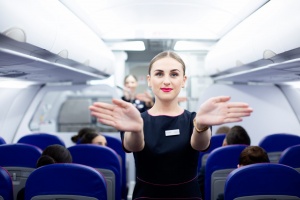Wizz Air Introduces Fixed Cabin Crew and Pilot Rosters

One of Europe’s fastest-growing airlines is to introduce a fixed roster pattern for pilots and cabin crew as it seeks to shake off criticism over how it treats staff and attract new recruits to fill a growing number of vacancies across the continent.
Traditionally, pilots and cabin crew have been expected to work variable shift patterns which change month to month. There is no set pattern like in many jobs and aircrew might only find out what days they’ll be working or have off a few weeks beforehand.
This method of rostering is a necessity for airlines which operate hub networks and send their crew on layovers or multi-day trips. It’s less important, however, for airlines that operate point-to-point flights and have crew bases in multiple locations.
Ryanair introduced a five-day-on/three-day-off roster for cabin crew back in 2015 as part of a pay and productivity deal that was designed to improve work-life balance but also drive an increase in crew performance.
Now, the Hungarian budget carrier Wizz Air is set to copy Ryanair by introducing its own fixed roster for pilots and cabin crew. The first fixed roster pattern will be introduced in October 2022, but it could take six months for the roster to be rolled out across Wizz Air’s network.
Aircrew will have the option to choose the fixed roster or stay on a flexible schedule.
Although Wizz Air’s fixed roster may differ between bases, it will likely resemble something close to what Ryanair offers. Cabin crew work three early shifts, have three days, then work five late shifts before another three days off.
“The new scheme has been developed to ensure it maintains the airline’s operational stability as well as supporting its ambitious development plans,” the airline said in a statement.
ADVERTISEMENT
“Pilots choosing to remain with their current flexible roster pattern will be offered compensation based on their rank,” the statement continued.
In June, Wizz Air was slammed by European pilots group ECA after chief executive József Váradi appeared to suggest in a leaked internal video that pilots should continue to fly when they were tired.
“Such statements are detrimental for safety and brush aside decades of research and scientific consensus about the dangers of fatigue in aviation,” the ECA warned.
Earlier this year, a Danish pension fund says it would ditch its investment in the airline over alleged breaches of “human and labor rights”. The European Transport Workers Federation also believes Wizz Air has been struggling to recruit workers in certain markets because the terms and conditions it is offering are so poor.

